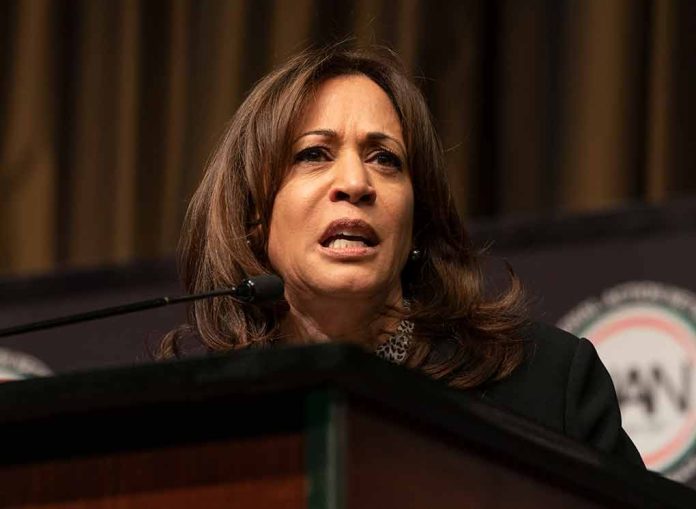
The Priorities USA Summit with Google sought to dissect Vice President Kamala Harris’s electoral defeat, signaling an intersection of political strategy and digital influence.
At a Glance
- Priorities USA hosted a summit to strategize Democratic resistance against the Republican agenda.
- Google co-hosted the post-summit party but did not partake in strategy deliberations.
- Criticism arises over the Democratic response to electoral defeats and focus on censorship.
- Donald Trump has leveled accusations of bias against Google, adding complexity to the summit’s context.
The Summit’s Purpose
Priorities USA’s summit focused on recalibrating response mechanisms against Republican advances following Kamala Harris’s electoral defeat. Democratic leaders and influencers discussed crafting strategic countermeasures tailored to oppose Republican methodologies. The summit aptly named “2024 Digital Retrospective,” aimed to address the Democratic Party’s lack of introspection post-defeat. Political commentators note a tendency among democrats to disregard comprehensive self-evaluation, choosing rather to bolster previous positions.
Democratic activists and operatives convened to dissect Harris’s defeat, seeking to pinpoint gaps and recalibrate strategies. The summit sought to enhance the Democratic playbook by investigating prior failures and intentional mobilization in digital spheres. These efforts come amid revelations that Trump’s policies resonated significantly with young, Black, and Hispanic voters, contrary to prevailing assumptions. Discussions highlighted the importance of reevaluating assumptions and strategies to regain political relevancy.
The Role of Tech Giants
Google collaborated with Priorities USA for the summit’s afterparty. However, according to a Google spokesman, “We did not participate in creating the content of the meeting. As they do for large ad buyers on both sides of the aisle, our political sales team will host some drinks after it.” This delineation underscores Google’s delicate balance between corporate neutrality and political engagement.
Google’s involvement in the summit coincides with critical assessments by figures like Donald Trump, who said, “I think it’s a whole rigged deal. I think Google is rigged just like our government is rigged all over the place.” His criticisms juxtapose Google’s activities within the political landscape, amid fears from Big Tech over potential antitrust actions under Trump’s tenure.
Challenges Facing Democratic Leadership
Democratic leaders were keen on strategizing defenses against Republican-led policies. Jonathan Turley offers a critical perspective, suggesting the Democratic addiction to “rage politics” prevents acknowledgement of strategic flaws, thereby counteracting their political goals. Despite passionate discourse, there’s a need for calm and deliberate self-assessment.
Scrutiny has arisen over the Democratic Party’s rhetoric towards Trump supporters, accused of using derogatory labels which could entail further losses. As prosecutors and governors gear up to resist Trump’s policies, potential legal battles over federal versus state powers loom on the horizon. Thus, Democratic operatives must address both internal rhetoric and external political resistance.





